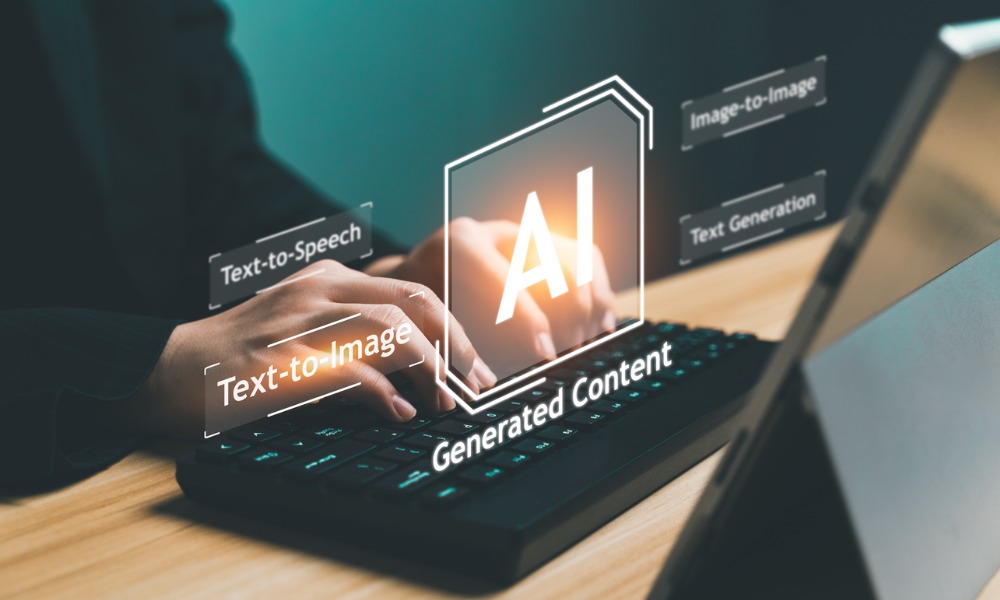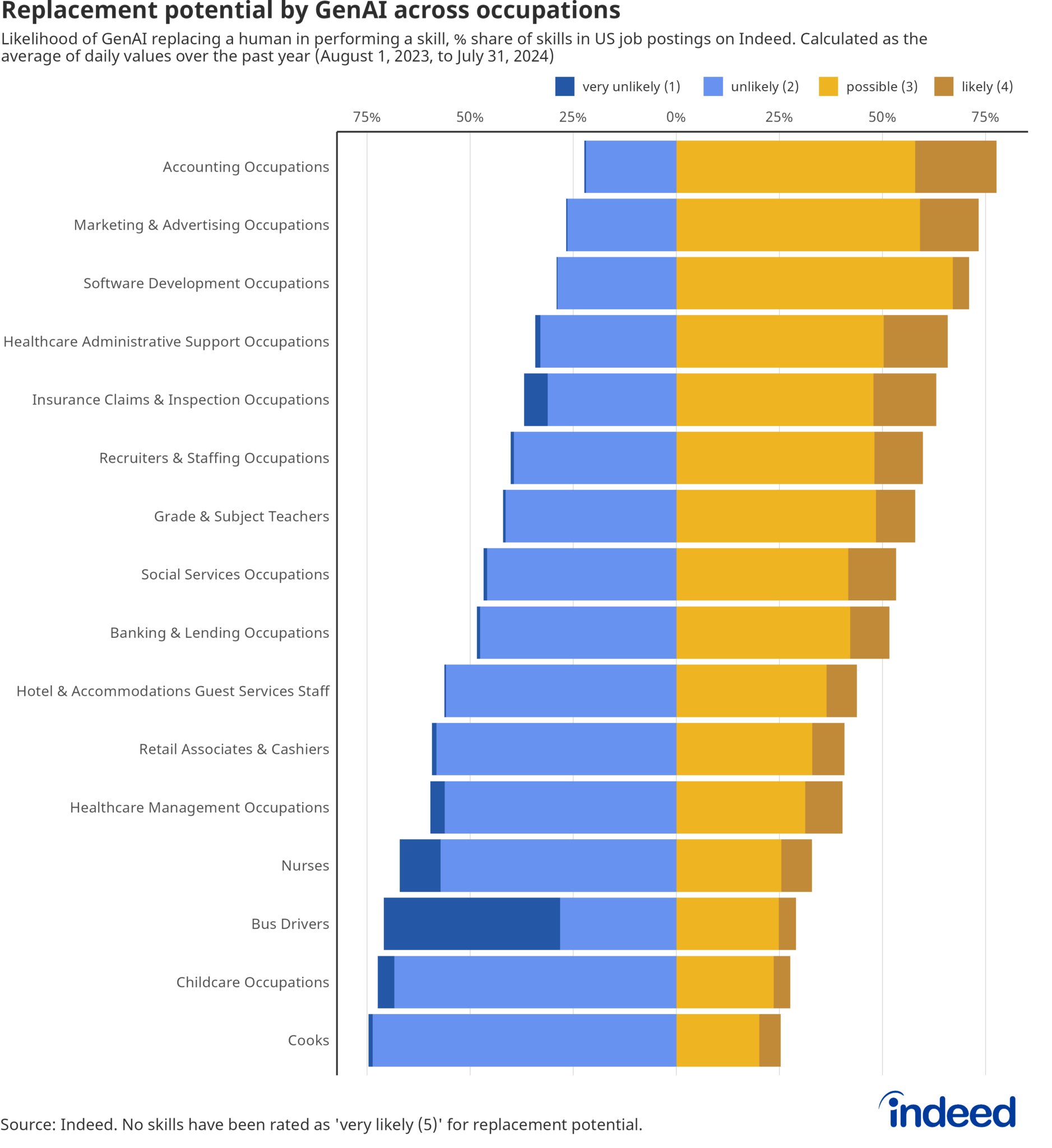
Reports looks at jobs, skills most likely to be replaced by GenAI tools

A new report has found that it is unlikely for generative AI (GenAI) to replace employees today, as concerns about the emerging technology's threat to job security continue to mount.
Research from Indeed Hiring Lab recently looked at GPT-4o, a GenAI model developed by OpenAI, to perform more than 2,800 job skills.
What it found was 68.7% of skills assessed were "very unlikely" or "unlikely" to be replaced by GenAI.
Only 28.5% of skills could potentially be replaced by GenAI in the future if businesses "change some practices and the tools improve."
"Today's generation of GenAI tools are not 'very likely' — literally — to replace a competent human worker in mastering and performing even a single one of thousands of common work skills identified by Indeed," the report stated.
According to the findings, it is "possible" or "likely" for GenAI to replace a human at more than 71% of skills commonly found in job postings for software development occupations.
On the other hand, GenAI is only capable of replacing a human for about 32.9% of skills found in the typical job posting for a nurse.
"Generally, the lower the share of skills in a given job that require physical execution, the higher the share of skills that could possibly or likely be replaced by GenAI," the report stated.

But what GenAI can do is offer assistance for time-consuming tasks, such as summarising dense texts or quickly generating highly polished images or audio, according to Indeed.
It noted that GenAI may be able to obtain the same level of knowledge and solve some modest problems for the stereotypical office job.
But for roles that require hands-on execution, such as in healthcare, it could be more useful in documenting medical work, allowing a nurse or doctor to focus more on performing actual patient care or learning about it.
"But as it stands today, GenAI is best suited to applying its skills to help with relatively straightforward work tasks that require only modest problem solving and, most importantly, no hands-on execution," the report stated.
"The takeaway is the same for all workers: While GenAI is highly unlikely to take a person's job, a person who knows how to use GenAI productively almost certainly will.”